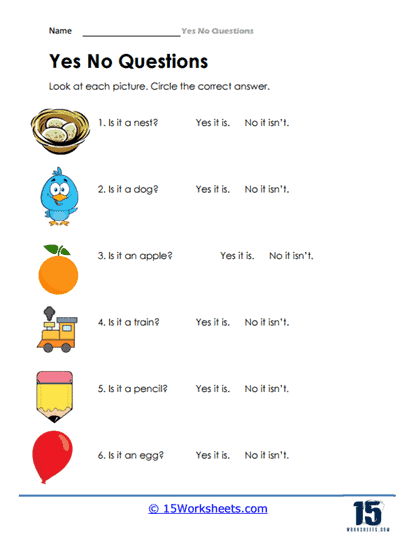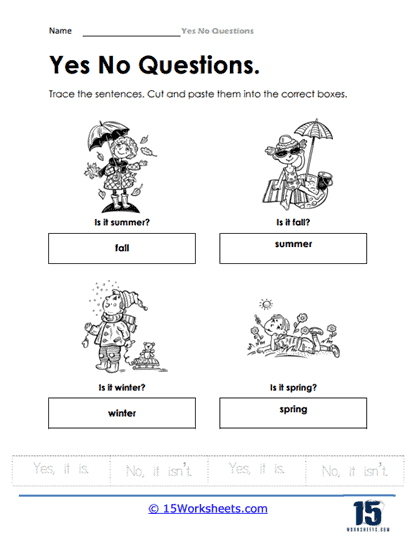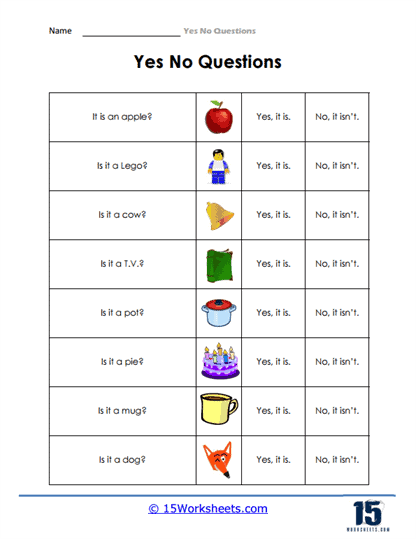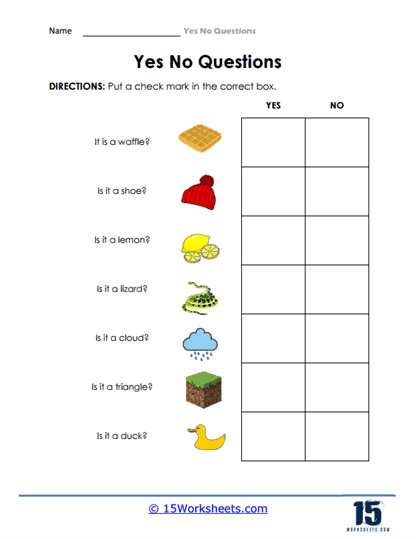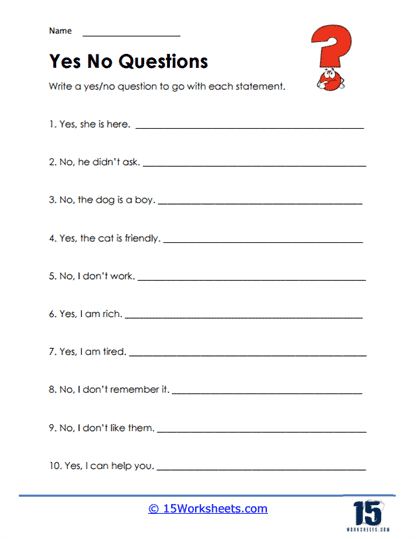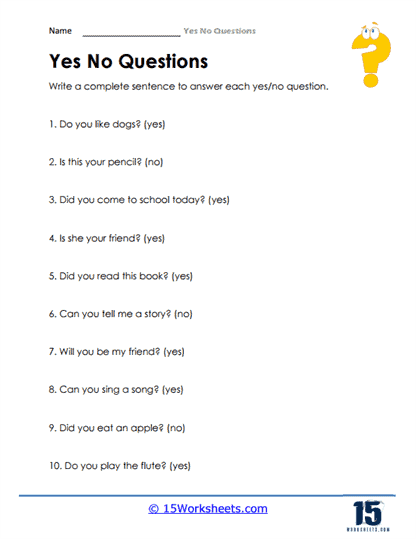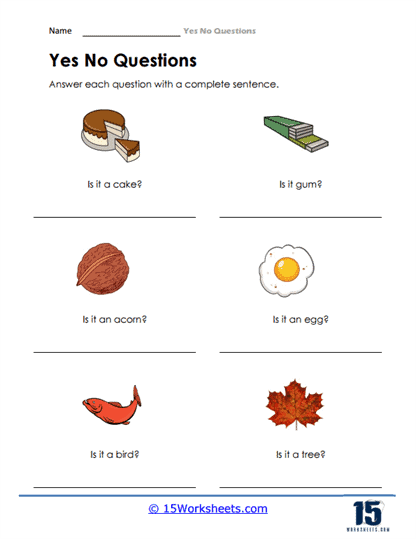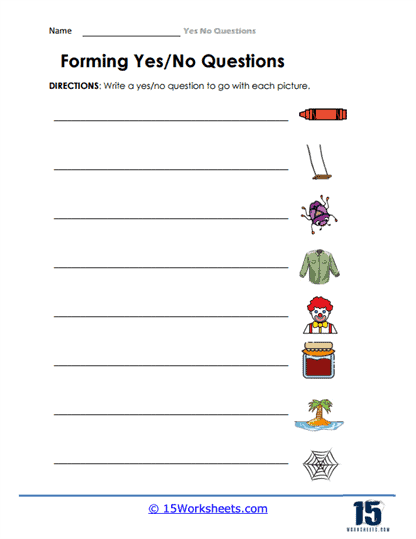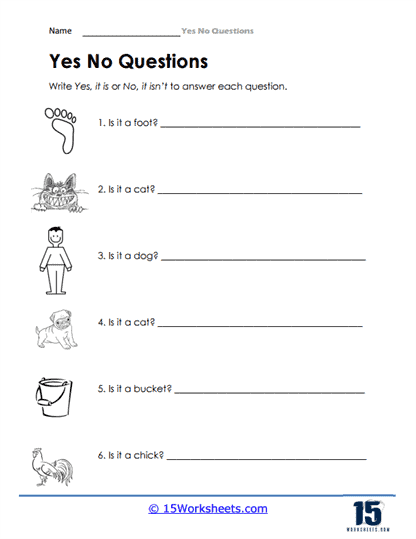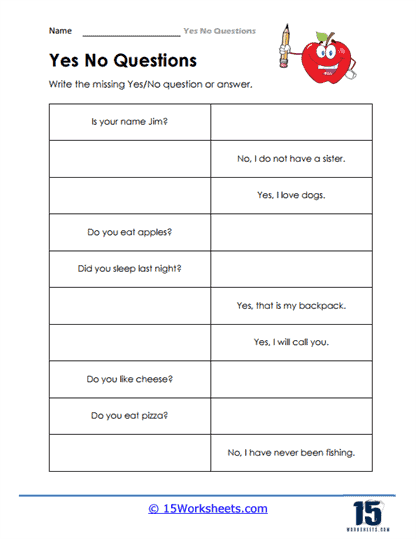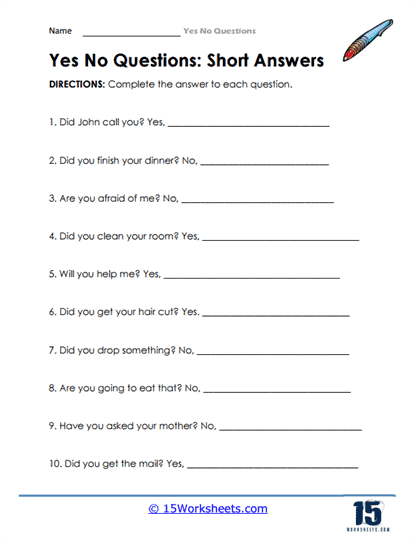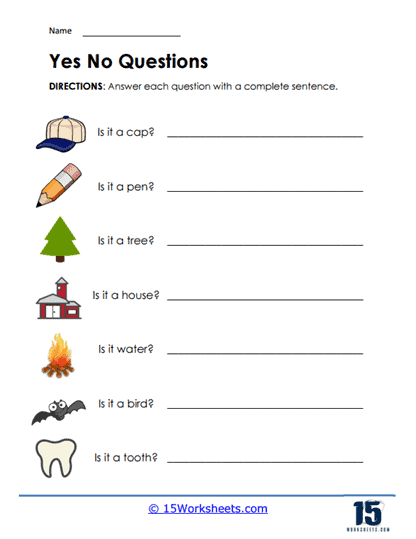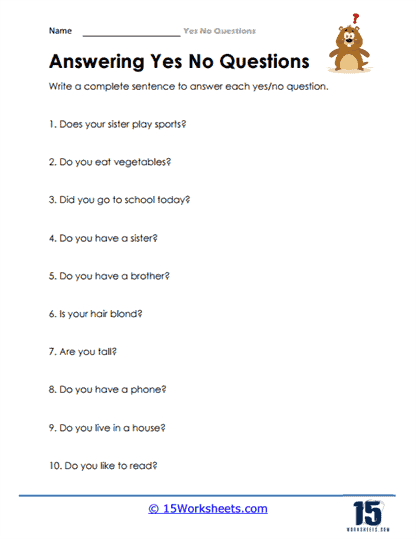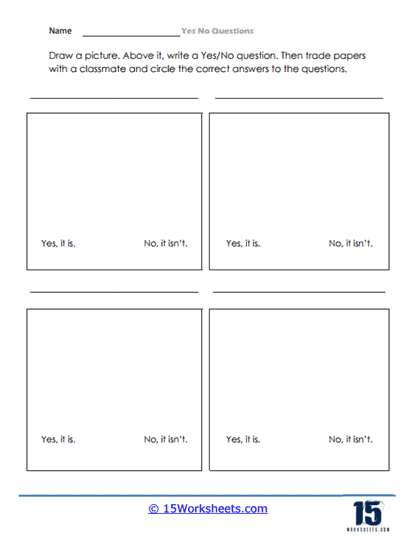Yes or No Questions Worksheets
What Are Polar Questions? (Yes-no) Why Do We Use Them?
A question is intended to either retrieve information or to clear confusion. All types of languages have different kinds of questions that are used in unique situations to fulfill different purposes. The major two categories of questions in the English language are open-ended questions and close-ended or polar questions.
Open-ended questions are meant to gather information or an explanation. They are structured in a way that the person being asked has no choice but to give out information and use more than one word to properly answer the question.
For instance, look at the question below:
What activities did you take part in during the last family vacation?
Such a question requires a detailed answer that contains multiple words, phrases, and could even be answered in several sentences.
On the other hand, we have close-ended or polar questions that have a one-word answer limit and are always answered with either yes or no. Some examples of polar questions include:
- Is the weather outside hot?
- Did you wear a red shirt last night?
- Would you like some tea?
The person being asked these questions will answer with a yes or a no. Continue reading below to learn about the different uses of polar or close-ended questions.
When Are Polar (yes or no) or Close-ended Questions Most Commonly Used?
When Finalizing a Purchase or a Sales Deal
Polar or close-ended questions are most commonly used when a person is trying to finalize a sales deal or lock a purchase price. This is a common tactic taught during sales-related training sessions.
When you throw a polar question at your customer, they usually have limited responses and are naturally unable to continue the bargain. Eventually, with sufficient polar questions, a deal gets finalized just the way you want it to be.
For instance, imagine you have to sell a shelf to a customer. When you feel like the customer is sufficiently convinced regarding the benefits of the shelf, you need to start using polar questions like:
- Shall we proceed to the billing counter?
- Should I schedule a delivery for tomorrow at 6 pm?
Such questions will successfully corner your customer and their response will be limited to a yes or no. In most cases, the answer is often a yes.
When Conducting a Brief Interview
Although some job interviews include multiple open-ended questions to gather the maximum information on a potential candidate, brief interviews often use small polar questions. For instance, they can include:
- Have you completed your Master’s degree?
- Are you willing to work a full-time job?
When Time is Limited
Lastly, asking polar or close-ended questions saves a lot of time and you are able to gather a lot of viable information in a short period.

